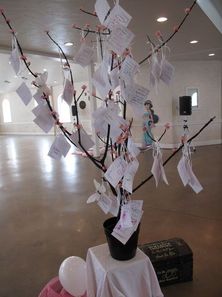
Perhaps one of the most difficult aspects of micro-finance is in finding funding. Many different avenues exist for funding, through venture capital funding, angel investors, friends and family, or by using your networks. Correct utilization of networking can be an excellent source of finding funding.
One example of utilizing a network is Effect International. The students who started Effect International are alumni of Utah State University, and are utilizing the friendships and connections made there to make a difference in the world as a whole. Over the course of the last year, the Huntsman Scholars in the School of Business at Utah State University have worked with Effect International to raise money to build a school in India.
This school will be located in the village of Kuan, Madhya Pradesh, India, and is the second school to be built by Effect International. The first school is established and is already serving 120 students, with plans to expand. It seems that there is always more need for education, and the individuals working with Effect International are trying to meet the growing needs.
The location of the school in Kuan is very strategic, as it is a central location for several communities, and will allow students from many villages to attend school. These children currently have very little opportunity for schooling, as the system is very corrupt, and teachers don’t even bother showing up to teach. Effect International works with the communities to build the school, hire teachers, and oversee the operations to ensure that children are educated properly.
In order for Effect International to have the funds to build and operate the schools, they reached out to their established network at Utah State University. One of the co-founders of Effect International is an alumnus of the Huntsman Scholars Program, so current students in the program reached out to help. They set up craft fairs, a princess party, bake sales, developed partnerships with restaurants to receive a portion of proceeds, and created small businesses to raise the money necessary to build the school.
The craft fair was an expo of several businesses, many with international ties, who set up booths in a large center, allowing community members to have a central location to see what the community had to offer. These businesses provided everything from homemade jewelry to belt buckles made from caribao (an animal native to the Philippines) to notebooks with paintings, photographs, and drawings made by novice artists from around the world.
The princess party was an event held for young girls which provided an opportunity for them to dress up as a princess and go to get their hair and nails done, story time, dancing, and encouragement for them to fulfill their dreams. The group had the girls write down their dreams on a slip of paper, and the group then developed a dream tree, as seen in the picture, with all of the dreams hung on the limbs of the trees. The community responded positively, and the event was a great success.
Many small businesses were created, such as a window-washing business, bake sales, and a partnership with local restaurants which allowed the students to advertise attendance at a restaurant in favor of the group raising money for Effect International as a portion of profits.
By reaching out to their network, thousands of dollars of funding was raised for Effect International. Likewise, think of the connections that you may have as you try to find funding. Consider what resources you may have at your disposal which can help you achieve your purpose. CREED is currently raising capital to fund micro enterprises loans in Belize. Click on one of the links to donate.



 RSS Feed
RSS Feed

